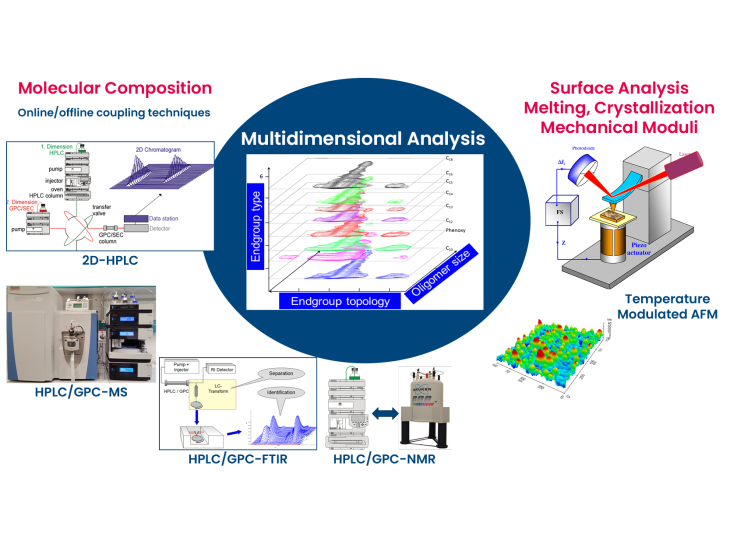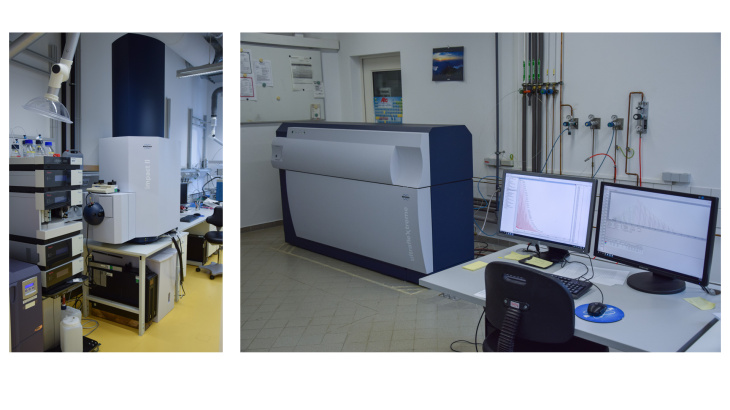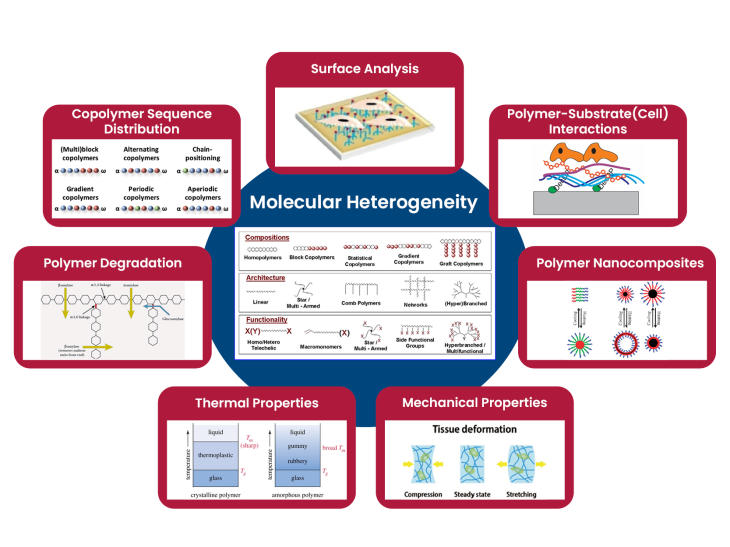Correlative Characterization
The development of multifunctional, polymer-based biomaterials for the application in regenerative medicine requires not only the precise synthesis of such materials but also the exact characterization of their molecular structure. The advanced characterization of polymer-based biomaterials is the focus of the ‘Department of Multidimensional Polymer Characterization’. Tailor-made polymers are characterized by well-defined molecular parameters such as molecular size, chemical composition and (in some cases) branching as well as the type, number and position of specific functional groups. For the quantitative analysis of these molecular parameters, advanced analytical methods are necessary. The results of the advanced analyses are correlated with specific materials’ properties, such as toughness, elasticity, flow behaviour, thermal properties and summarized and tabulated in polymer libraries.
Profile
In addition to spectroscopic methods (FTIR, NMR, mass spectrometry), fractionation methods such as GPC (gel permeation chromatography) and HPLC (high performance liquid chromatography) are frequently used for the analysis of the most important molecular parameters. Since, in many cases, single methods provide only one molecular parameter (e.g. molar mass by GPC), coupled and advanced methods are used for the analysis of multiple molecular parameters. The simultaneous analysis of the chemical composition and molar mass distributions is obtained by comprehensive (coupled) two-dimensional liquid chromatography (2D-LC). By coupling of GPC/HPLC with spectroscopic methods, distributions in branching and functional groups can be obtained.

Equipment
- multiple GPC systems for different mobile phases
- multiple detectors (RI, DAD, MALLS, Visco, ELSD, MS)
- comprehensive (automatic) 2D-HPLC
- HPLC-MS
- preparative HPLC-MS
- MALDI-ToF mass spectrometry
- UPLC-ESI-QToF mass spectrometry
- 500 and 700 MHz NMR spectrometer (Avance Neo) with autosampler, temperature units and different probe heads: TCI-Prodigycryo-, HR-MAS- and SMART broadband probe heads
High-resolution NMR spectroscopy with a Prodigy cryoprobe (700 MHz) provides molecular information on polymer-based biomaterials such as chemical composition, functional groups and microstructure. Hydrogels and biological tissue samples can be investigated with a HR-MAS (High Resolution Magic Angle Spinning) probe (500 MHz).

With advanced mass spectrometry (MALDI-ToF, ESI-QToF), smallest sample quantities can be analysed regarding molecular composition. Using this approach, degradation products of polymer-based biomaterials can be characterized.
Using most advanced infrastructure, the department offers its core competence in all types of polymer fractionation. In addition to various multiple-detector GPC and HPLC systems, comprehensive two-dimensional liquid chromatography (2D-HPLC) offers the simultaneous fractionation of complex samples with regard to different molecular parameters. The coupling of chromatography with spectroscopic methods (e.g. HPLC-MS und HPLC-FTIR) provides a broad range of experimental approaches for the molecular analysis of polymer-based biomaterials.

